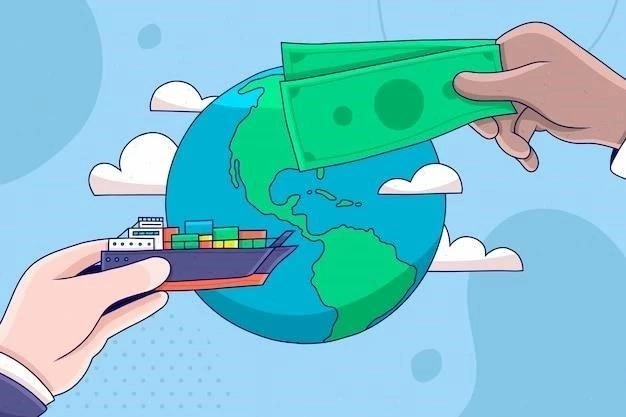U.S. Influence and Control within the IMF
The United States holds a historically significant position within the IMF. As a founding member and the largest shareholder, its influence is woven into the institution’s structure and operations. The U.S. contributes the largest share of the IMF’s financial resources, granting it considerable voting power—currently around 17%. This power is particularly crucial as major IMF decisions necessitate an 85% majority vote, effectively granting the U.S. veto power. This dominant position has historically enabled the U.S. to significantly shape IMF policies and lending practices.

The Role of the U.S. in IMF Financial Contributions
The United States has consistently been the largest financial contributor to the International Monetary Fund (IMF) since its inception, reflecting its position as a global economic power and its vested interest in a stable international monetary system. This financial commitment takes two primary forms: quota subscriptions and New Arrangements to Borrow (NAB) commitments.
Quota subscriptions represent the primary source of the IMF’s financial resources. Each member country contributes a sum of money, known as a quota, proportionally reflecting its relative size and position in the global economy. The U.S., with the world’s largest economy, holds the largest quota, currently exceeding $117 billion, representing approximately 17% of the total quota share. This signifies that the U.S. contributes $17 out of every $100 to the IMF’s lending pool.
In addition to quota subscriptions, the U.S. participates in the New Arrangements to Borrow (NAB), a supplementary funding mechanism established in 1998 to supplement the IMF’s resources in times of exceptional financial need. The NAB essentially functions as a line of credit that the IMF can tap into should the need arise, with participating member countries pledging specific amounts they are prepared to lend. The U.S. is the largest contributor to the NAB, pledging approximately $41 billion, further solidifying its role as a financial cornerstone of the IMF.
This substantial financial commitment by the U.S. to the IMF is not merely a matter of international goodwill but serves several strategic U.S. interests. Firstly, a well-funded IMF is crucial for maintaining the stability of the international monetary system, a system upon which the U.S. economy, heavily reliant on international trade and investment, significantly depends. Secondly, the U.S. leverages its financial clout within the IMF to promote its economic policy preferences globally, advocating for free trade, open markets, and fiscal responsibility, principles considered beneficial to long-term U.S. economic interests. Finally, the IMF’s ability to provide financial assistance to countries facing economic crises, often with U.S. support, can help avert broader regional or global economic instability, further safeguarding U.S. economic interests.
In conclusion, the U.S. plays a critical role in financially supporting the IMF, a role that not only reflects its global economic standing but also serves its strategic interests in maintaining global financial stability and promoting its economic policy vision internationally.

Impact of U.S. Policies on the IMF
The United States’ influential role within the IMF translates into a significant impact on the organization’s policies and lending practices. This influence stems from its position as the largest shareholder, its voting power, and its historical role in shaping the institution’s founding principles.

U.S. economic policies often find expression in the IMF’s lending conditions and policy recommendations. The promotion of free trade, open markets, deregulation, and fiscal conservatism—cornerstones of the U.S. economic model—have frequently been reflected in the IMF’s structural adjustment programs, particularly during the 1980s and 1990s. These programs, often a condition for receiving IMF loans, aim to address macroeconomic imbalances but have been criticized for their social impact and for potentially undermining national sovereignty.
Moreover, the U.S. government’s stance on specific global economic issues often influences the IMF’s agenda and priorities. For instance, the U.S. has been a vocal advocate for increased financial transparency and accountability, particularly within emerging market economies. This focus has led to greater emphasis on these issues within the IMF’s surveillance and technical assistance programs.
However, the U.S.’s impact on the IMF is not always uniformly exerted. The institution operates through a complex system of consensus-building among its diverse membership, and the U.S. does not always get its way. Emerging economies, with growing economic clout, have increasingly voiced their perspectives and challenged the traditional dominance of developed nations like the U.S. within the IMF. Furthermore, shifts in U.S. domestic politics and priorities can also influence its approach to the IMF, impacting the degree to which it actively shapes the institution’s agenda.
In conclusion, while the U.S. continues to exert significant influence on the IMF, this influence is not absolute. The IMF’s evolving dynamics, the rise of new economic powers, and the complexities of international cooperation ensure that the impact of U.S. policies on the institution remains a dynamic and constantly evolving aspect of global economic governance.

Historical Examples of U.S.-IMF Cooperation
The relationship between the United States and the International Monetary Fund (IMF) has been marked by significant instances of cooperation, reflecting their shared interest in maintaining global financial stability and promoting economic growth, particularly during times of crisis. These instances demonstrate the U.S.’s willingness to utilize the IMF as a mechanism for addressing economic challenges on a global scale, often aligning with its foreign policy objectives.
One prominent example is the Mexican debt crisis of 1982. The crisis, triggered by Mexico’s inability to service its burgeoning external debt, sent shockwaves through the global financial system, threatening a cascade of defaults by other developing countries. The U.S., recognizing the systemic risk and the potential impact on its own economy, played a pivotal role in coordinating an IMF-led rescue package for Mexico. This package, contingent upon economic reforms, helped stabilize the Mexican economy and prevent a broader financial meltdown, demonstrating the U.S.’s proactive approach to utilizing the IMF for crisis management.
Another notable example is the Asian financial crisis of 1997-1998. The crisis, originating in Thailand and rapidly spreading across East Asia, highlighted the vulnerabilities of emerging economies to rapid capital flows and financial market volatility. The U.S., once again recognizing the potential for global contagion, supported significant IMF financial assistance packages for affected countries, particularly South Korea and Thailand. These packages, while controversial for the stringent austerity measures attached, helped mitigate the crisis’s impact and restore a degree of financial stability to the region.
More recently, the global financial crisis of 2008-2009 witnessed unprecedented levels of U.S.-IMF cooperation. The crisis, rooted in the U.S. housing market collapse but quickly spreading globally, necessitated coordinated international action to prevent a global economic depression. The U.S., acknowledging the severity of the crisis and its global reach, worked closely with the IMF to deploy substantial financial resources, supporting a range of measures, including lending facilities, liquidity injections, and strengthened financial regulations. This collaborative effort helped stabilize global markets and mitigate the crisis’s worst effects, demonstrating the continuing relevance of U.S.-IMF cooperation in addressing global economic challenges.

Current Challenges and Future of the U.S.-IMF Relationship

The U.S.-IMF relationship, while historically robust and critical for global economic governance, currently faces a confluence of challenges that are reshaping its dynamics and raising questions about its future trajectory. These challenges stem from a shifting geopolitical landscape, evolving economic realities, and internal debates about the IMF’s role and effectiveness.
One prominent challenge is the rise of new economic powers, particularly China, and the increasing assertiveness of emerging economies within the IMF. These countries, with growing economic clout, seek greater influence within the institution, challenging the traditional dominance of the U.S. and other advanced economies. This power shift is prompting calls for IMF reform, including adjustments to voting shares and governance structures, to better reflect the evolving global economic order. The U.S., while acknowledging the need for some reforms, has been cautious about relinquishing its influential position, creating potential friction points in its relationship with emerging economies within the IMF.

Another challenge stems from evolving perceptions of the IMF’s role and effectiveness. Critics, particularly within developing countries, argue that the IMF’s lending practices, often accompanied by stringent austerity measures, can exacerbate economic hardship and undermine national sovereignty. Furthermore, questions linger about the IMF’s ability to effectively address 21st-century economic challenges, such as climate change, pandemics, and technological disruptions. These concerns necessitate a re-evaluation of the IMF’s mandate and operational modalities, a process likely to involve significant debate and negotiation between the U.S. and other member countries.
The U.S.-IMF relationship also faces challenges stemming from shifting U.S. foreign policy priorities and domestic political dynamics. The rise of populism and protectionism within the U.S. has, at times, generated skepticism towards multilateral institutions like the IMF, potentially impacting U.S. engagement and financial commitments. Navigating these internal pressures while upholding the IMF’s role in global economic governance will require careful diplomacy and a clear articulation of the institution’s continued relevance to U.S. interests.










